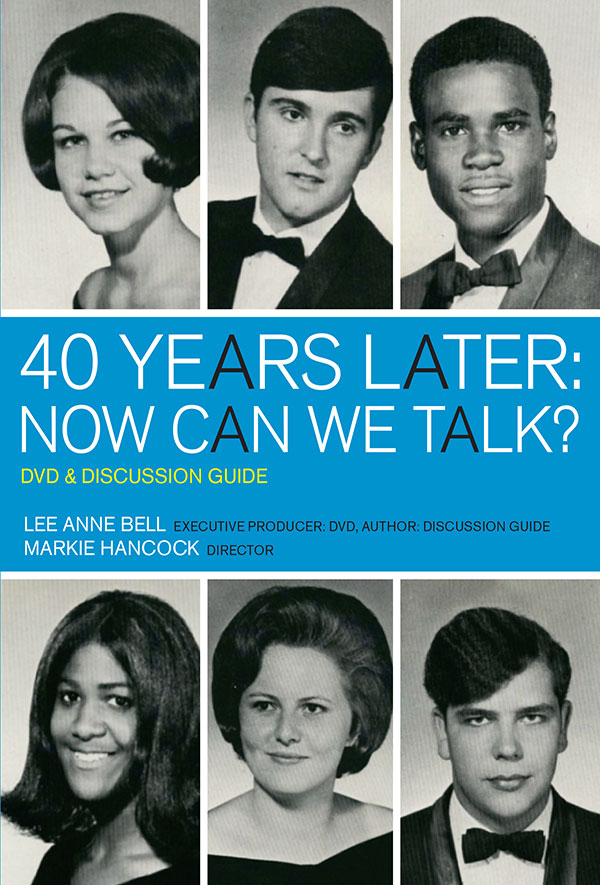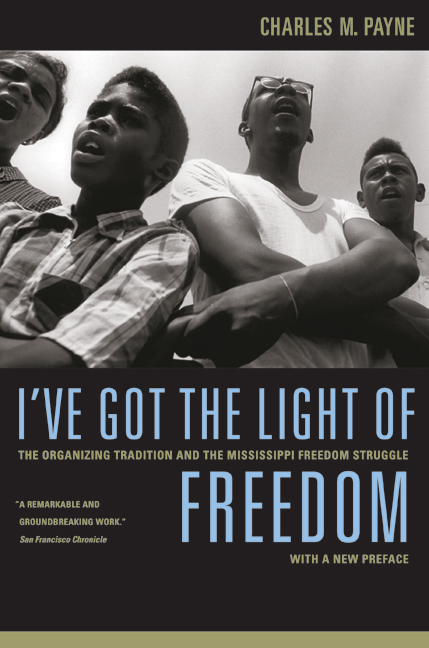 The 40 Years Later: Now Can We Talk? DVD and discussion guide offer a powerful way to engage students, teachers, and community groups in honest dialogue about the ongoing problems of racism and what we can do to address them. The film tells the story of the first African Americans to integrate the white high school in Batesville, Mississippi in 1967-69. A provocative and moving conversation emerges from separate discussions with African American alumni, white alumni, and a third dialogue that brings the two groups face-to-face.
The 40 Years Later: Now Can We Talk? DVD and discussion guide offer a powerful way to engage students, teachers, and community groups in honest dialogue about the ongoing problems of racism and what we can do to address them. The film tells the story of the first African Americans to integrate the white high school in Batesville, Mississippi in 1967-69. A provocative and moving conversation emerges from separate discussions with African American alumni, white alumni, and a third dialogue that brings the two groups face-to-face.
The 45-minute DVD and discussion guide can be used to fruitfully explore several issues and related themes, including the impact of desegregation on both students of color and white students, racial bullying, the impact on victims, the responsibility of bystanders, and the role adults play in perpetuating or interrupting racial microaggressions that negatively impact students of color. [Publisher’s description.]
Produced by Lee Anne Bell. Directed by Markie Hancock. Teachers College Press, 2013.
Watch Excerpt
Reviews
40 Years Later: Now Can We Talk? is a moving and powerful documentary that uses storytelling to expose as well as heal the racial divide in American society. The stories prompt examination of critical questions that can assist both students and educators in a variety of settings not only to reflect on past injustices, but also to confront the present context of increasing racial segregation and inequality. Lee Anne Bell has produced an inspiring experience. —Jacqueline Jordan Irvine, professor emerita, Emory University
A stunning film about yesterday, and unfortunately today; about the sacrifices of the first generation, and the always unfulfilled promise of integration. This film serves as a window on American educational history, from racialized bodies to the national body politic. 40 Years Later demands, indeed, that now we must talk. Producer Lee Bell is not only a brilliant educator and writer, but she has found a new medium for her message, and her call for action. —Michelle Fine, Distinguished Professor of Social Psychology, Women’s Studies, and Urban Education, the Graduate Center, CUNY








Twitter
Google plus
LinkedIn